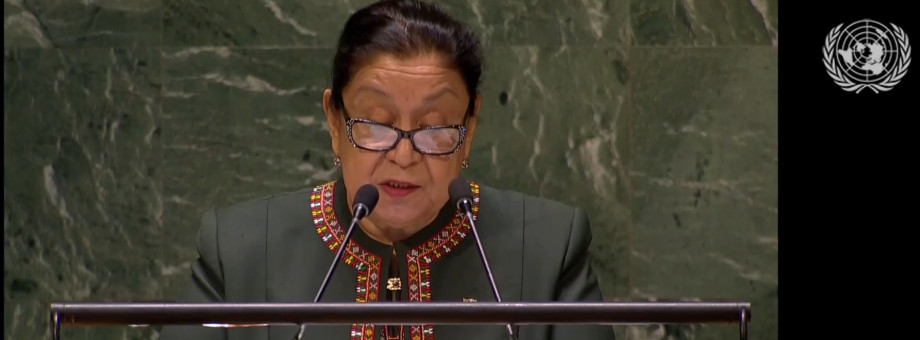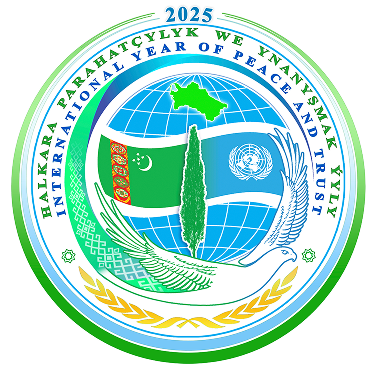Under the chairmanship of Turkmenistan, the United Nations General Assembly held a debate on the Zone of Peace, Trust and Cooperation in Central Asia

On May 16, 2023, the debate of the United Nations General Assembly initiated by Turkmenistan on agenda item 61 "Zone of Peace, Trust and Cooperation in Central Asia" was held.
During the debate held under the chairmanship of Turkmenistan as Vice-President of the UN General Assembly, statements were made by the United Nations Member States.
Emphasizing the importance of the adoption on July 28, 2022, of UN General Assembly resolution 76/299 on declaring Central Asia a Zone of Peace, Trust and Cooperation, the delegations touched upon the following issues:
- Strengthening security and stability. The current security challenges facing the region and ways to strengthen regional cooperation and coordination in combating emerging threats were outlined, including the role of the United Nations, in particular the UN Regional Center for Preventive Diplomacy for Central Asia, and other international and regional organizations in these processes;
- Ensuring economic and social development. The interdependence between political stability and sustainable economic development in relation to the concept of a zone of peace, as well as the progress made by the Central Asian states in achieving stable economic growth and social development, is considered. The potential for regional economic integration and trends in trade and economic cooperation was also noted;
- Environmental sustainability. Participants touched upon the region’s environmental issues, including water management and climate change. Ways to promote sustainable and green development in Central Asia, including using renewable energy sources and conserving natural resources, were considered.
The Permanent Representative of Turkmenistan to the UN, Ambassador Aksoltan Ataeva, in her statement (see below), expressing gratitude to the UN Member States for supporting the resolution of the General Assembly initiated by Turkmenistan and adopted in 2022 on the proclamation of the Zone of Peace, Trust and Cooperation of Central Asia, drew special attention to the need for further development of this zone as a legal phenomenon by analogy with internationally recognized and currently formed zones of peace in various regions of the world, in particular in the South Atlantic and the Indian Ocean.
It was emphasized that the formation of a zone of peace in Central Asia became possible due to the institutional and legal framework for multilateral cooperation laid down by the countries of the region, namely, the creation of a mechanism of regular Consultative Meetings of the Heads of State of Central Asian countries, the signing of the Treaty on a Nuclear-Weapon-Free Zone in Central Asia in 2006, the establishment of the United Nations Regional Center for preventive diplomacy for Central Asia in December 2007, the creation on its basis of the Central Asia Women Leaders’ Caucus, the Academy of Preventive Diplomacy for youth and other platforms for promoting regional dialogue.
The high potential of cooperation between the countries of the region in the field of transport and energy, aimed at ensuring the interconnectedness of the interregional infrastructure of Central Asia, Europe, the Middle East, and the Asia-Pacific region, was underlined.
Emphasis was also placed on the key role of the Central Asian countries as neighboring states of Afghanistan in stepping up international efforts to stabilize this country, creating conditions for achieving national harmony through peaceful dialogue, contributing to international efforts to combat terrorism, and providing economic and humanitarian assistance to the people of Afghanistan.


 NEWS
NEWS